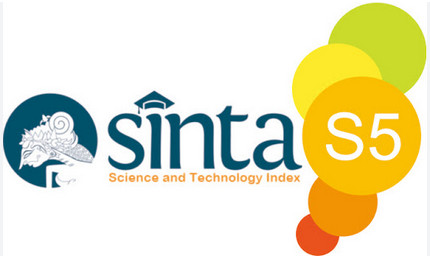Peran Koperasi Syariah Dalam Pengembangan Usaha Mikro Kecil (UMK) Pada KOSSUMA Kota Jambi
Abstract
Sharia cooperatives have a strategic role in growing the real sector, especially in micro-scale businesses and with sharia principles. Cooperatives are business institutions that empower small communities by paying attention to aspects such as justice, togetherness, kinship and shared prosperity. Cooperatives play an important role in helping the development of Small and Micro Enterprises (UMK), one of which is their role in channeling funds to business actors who find it difficult to obtain financing for their businesses. The purpose of this study was to find out the role of KOSSUMA, supporting factors related to the role of KOSSUMA, the obstacles encountered and find out the solutions that KOSSUMA did in assisting the development of UMK. Qualitative research methods with a descriptive approach, using a sample selection technique with provisions on the characteristics and characteristics of the research object. Data collection techniques, namely interviews and documentation. The results of the research show that KOSSUMA's role in helping business development as a collector and channeling of funds like other financial institutions has been very helpful for small micro business actors. The supporting factor for KOSSUMA is to make it easier for MSEs to apply for capital loans with easy conditions. KOSSUMA's obstacle was capital constraints. KOSSUMA's solution is to provide sufficient capital and help in terms of marketing in a way such as there are events held in Jambi City so that business people can sell their products there and reach consumers to make it easier.
Keyword: Sharia cooperatives, development, MSEs (Micro Small Enterprises)
References
Damayanti, M. , R. M. N. , R. R. (2022). PENERAPAN FIQH MUAMALAH DALAM KOPERASI SYARIAH. JECO : Journal of Economic Education and Eco-Technopreneurship, 1(1), 1–5.
Ginting N. M., S. W. , N. Y. S. J. ,. (2023). PERAN KOPERASI UMKM SYARIAH SUMUT DALAM MENGEMBANGKAN USAHA MIKRO KECIL DAN MENENGAH (UMKM) MASYARAKAT KOTA MEDAN. Kabilah: Journal of Social Community , 8(1), 744–757. https://doi.org/10.1080/10438599.2017.1362796
Hapsari, D. P. , A. H. A. N. (2017). MODEL PEMBUKUAN SEDERHANA BAGI USAHA MIKRO DI KECAMATAN KRAMATWATU KABUPATEN SERANG. Jurnal Akuntansi, 4(2).
Harsono. (2008). Enografi Pendidikan Sebagai Desain Penelitian Kualitatif. . Universitas Muhammadiyah Surakarta.
Hutagalung M. W., B. S. (2021). Peran Koperasi Syariah Dalam Meningkatkan Perekonomian dan Kesejahteraan Masyarakat Di Indonesia. Jurnal Ilmiah Ekonomi Islam, 7(03), 1494–1498. https://doi.org/10.29040/jiei.v7i3.2878
Indriyatni, L. (2013). Analisis Faktor-Faktor yang Berpengaruh Terhadap Keberhasilan Usaha Mikro dan Kecil. Jurnal STIE Semarang , 5(1), 54–70.
Meleong, L. J. (2018). Metodologi Penelitian Kualitatif edisi Revisi (38th ed.). PT. Remaja Rosdakarya.
Nurhartati F. (2008). Koperasi Syariah. Era Intermedia.
Suetjipto. (2015). Mengembangkan Koperasi. Cahaya Atma Pustaka.
Sugiyono. (2016). Metode Penelitian Kuntitatif, Kualitatif Dan R & D. Alfabeta.
Sujarweni W. Wiratna. (2020). Akuntansi UMKM (Usaha Mikro Kecil Menengah) . PT. Pustaka Baru.













